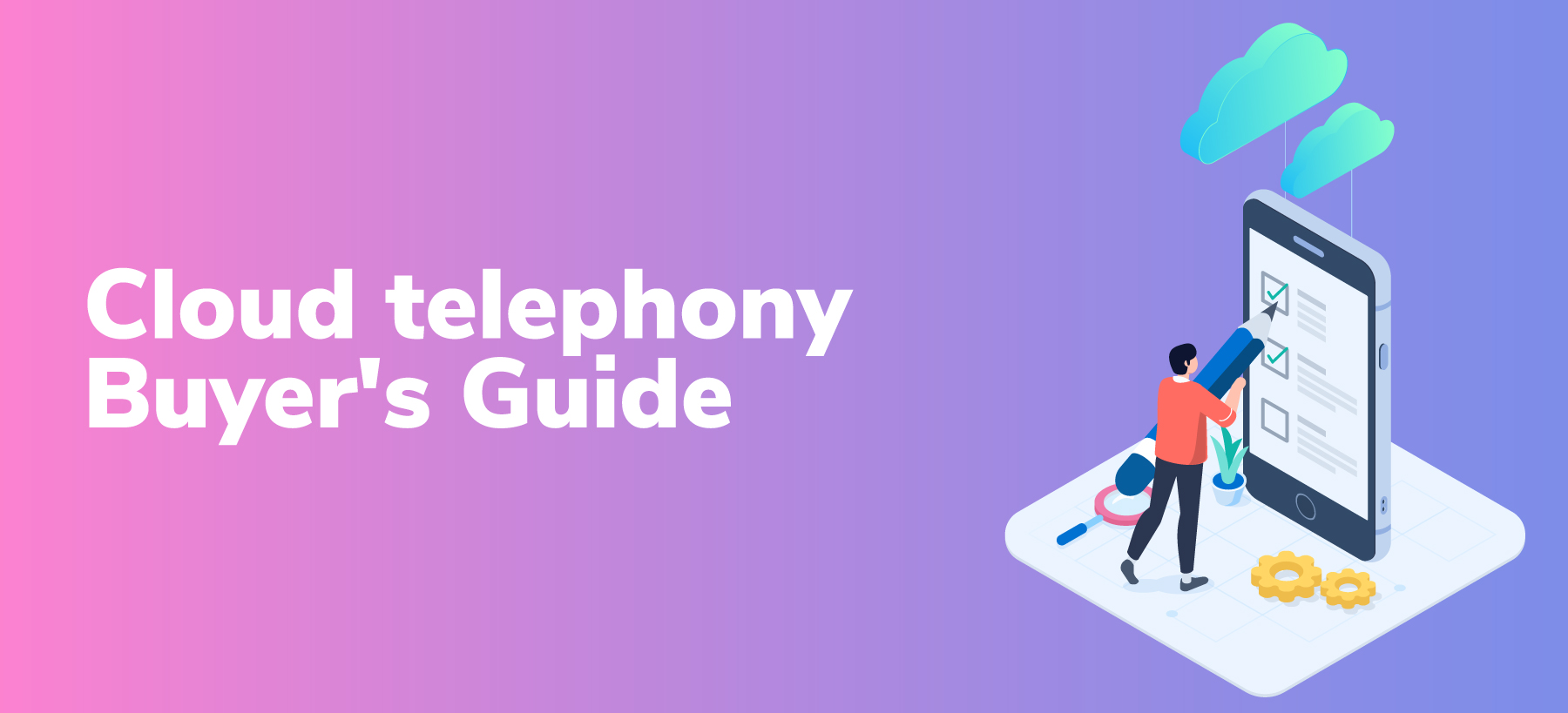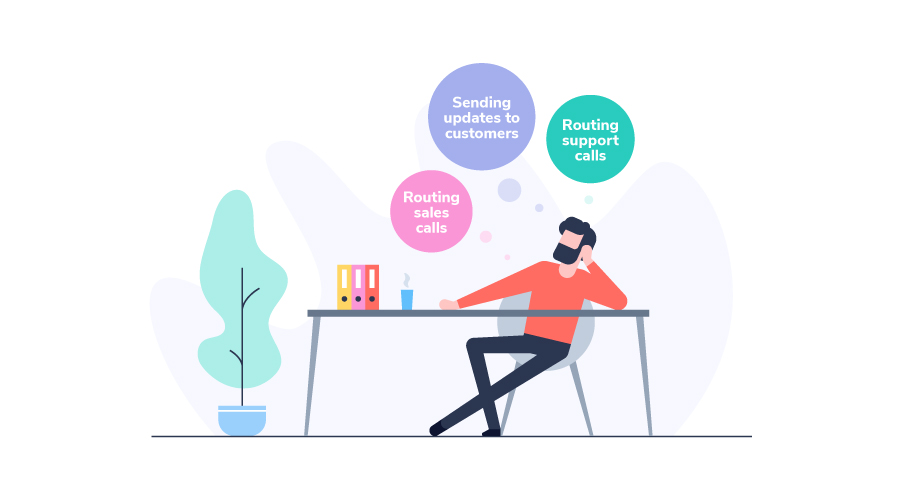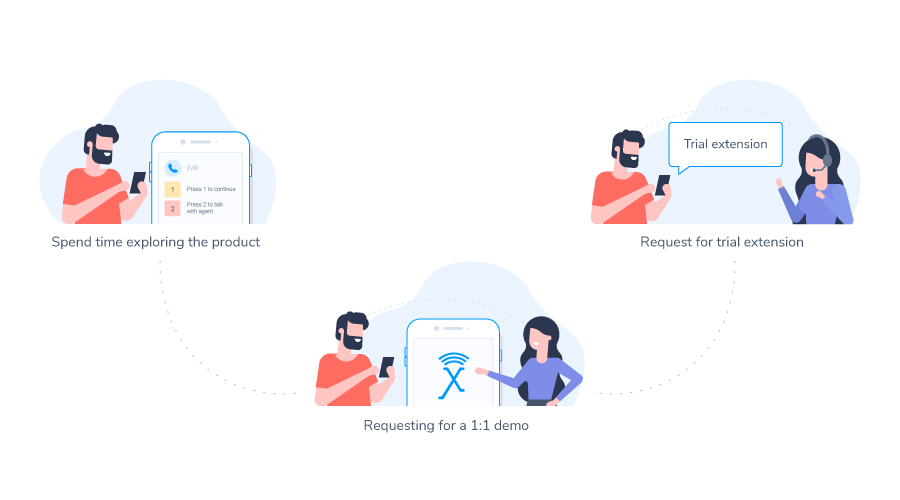More businesses are choosing cloud platforms over an on-premise setup. With cloud telephony, there’s no infrastructure cost involved, it’s very flexible and highly scalable. This makes it a perfect fit for both SMEs and enterprises.
But when you look in the market, there are hundreds of platforms to choose from. So, how can you find the cloud telephony platform that is the right fit for your business?
The aim of this guide is to help guide you through a list of parameters you should evaluate cloud telephony against so you can find the one that fits your business goals the best.
1. What are the capabilities of the platform?
There’s a step zero that we need to tackle before we get into the question about the platform’s capabilities. Can you list down what you would like to achieve using cloud telephony for your business. While you might be tempted to skip this part, I recommend spending time brainstorming your requirements with your team.
Our recommendation would be to narrow down your requirements as clearly as possible to help ensure that you are checking all the right boxes.
For example, if the points you’ve listed look like this –
- Routing sales calls
- Routing support calls
- Sending updates to customers
See if you can narrow it down further.
- Does the platform support call recordings? Is there an extra cost involved around it?
- Is there a native integration you can use to integrate with the CRM we’re using?
- What are the call rates?
- Does the platform allow you to send SMS in bulk?
- What is the cost involved and deliverability of the platform?
- Can I directly use an API to trigger the campaign?
The more detailed you are able to list down your requirements, the easier it will be for you to evaluate the tool against them. It is also important to understand your requirements from a futuristic perspective. For example, if you anticipate your sales team or your support to growth in the foreseeable future, it is important to factor that in as well. This will certainly change the dynamics of how well the platform can serve you as well.
Read more about Exotel’s platform capabilities.
2. How reliable is the platform?
When it comes to communication, reliability is everything.
Most cloud platforms are transparent in sharing their uptime. For example, Exotel’s operator uptimes range around 99.94%.
Realistically, no communication platform can promise you 100% uptime since this also depends on other factors like uptimes of phone lines, internet, etc. In case you face difficulties in finding this data, make sure to check with the support team.
3. Can you test the product capabilities before making a decision?
As a user, the trial period is a great way of exploring a product. It provides the flexibility of trying and testing functionalities of the tool without the financial risk of a purchase.
Try to make the most of the platform by creating communication flows and testing it by utilising the free credits. This will help you understand the capabilities of the product and whether it’s the right fit for your requirements.
Here are a few tips to make the most of the trial period –
- Make sure to spend enough time exploring the product. Ensure you spend time on the features and product capabilities that directly impact your business.
- Request for a 1:1 demo. A demo is a quick way of learning about important features. It also allows you to clarify your doubts.
- In case you’re not able to try the product in the specified time frame, feel free to request the support team to extend your trial.
4. How easy it is to setup and migrate from another platform?
A cloud phone system should be effortless to setup and manage. This is the main advantage over an on-premise solution. Ideally, you should be able to get started without having to spend days on it.
Here are some questions that you can ask yourself:
- Does this platform need a specialist to set up and maintain?
- How easy it is to integrate it with your existing applications like your CRM,
- Helpdesk, Web apps or mobile apps?
- Was the knowledge base helpful in understanding the product?
- Are the APIs clearly documented?
In case you already have a cloud telephony setup and are looking to switch to a new platform, understand how this can be done with minimal disruption and loss of data.
5. How secure is your data on the platform?
Customer communication involves sensitive customer information. Hence it’s very important to understand if the security of the platform is strong enough to protect your data.
Here’s what you should check in the platform –
- Security certifications – Does the platform adhere to industry standards of security? ISO certifications and GDPR compliance can be a good starting point. In case your industry requires certain security parameters, please ensure that you check about those as well.
- 2FA Authentication for accounts – To prevent any unauthorised login
- Network Encryption (TLS 1 and above) – To help you protect the data in transit
- Audit Logging and Monitoring – Helps you understand who’s accessing your platform
- Data backup and Recovering Plan – To prevent any loss of data
Learn about the security features of the Exotel platform.
6. What is their pricing structure like?
It’s crucial to understand the pricing of the software in detail. In case their pricing details are not publicly available, ensure you talk to the team to understand if there are any hidden charges. At Exotel, we went a step ahead and shared this blog “Why you pay what you pay for Exotel” where we broke down the charges and the reasons behind it.
Usually, there are two costs attached to a cloud telephony platform – one is the software rental and the other is calling rates. However, this might differ for different platforms.
Note – When selecting a plan, make sure to clearly ask the features you’ll be getting for that specific plan.

Moving your business communication to the Cloud
Businesses often move to cloud communication system to save on operational costs. However, that is not the only benefit of moving to the cloud. We wrote down the other direct and indirect advantages of moving your business communication to the cloud in this white paper.






 +91-8088919888
+91-8088919888 +61-2-8073-0559
+61-2-8073-0559 +62-215-098-4960
+62-215-098-4960 +60-3-2771-2799
+60-3-2771-2799 +65-6951-5460
+65-6951-5460